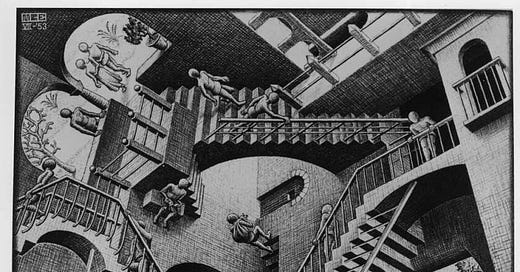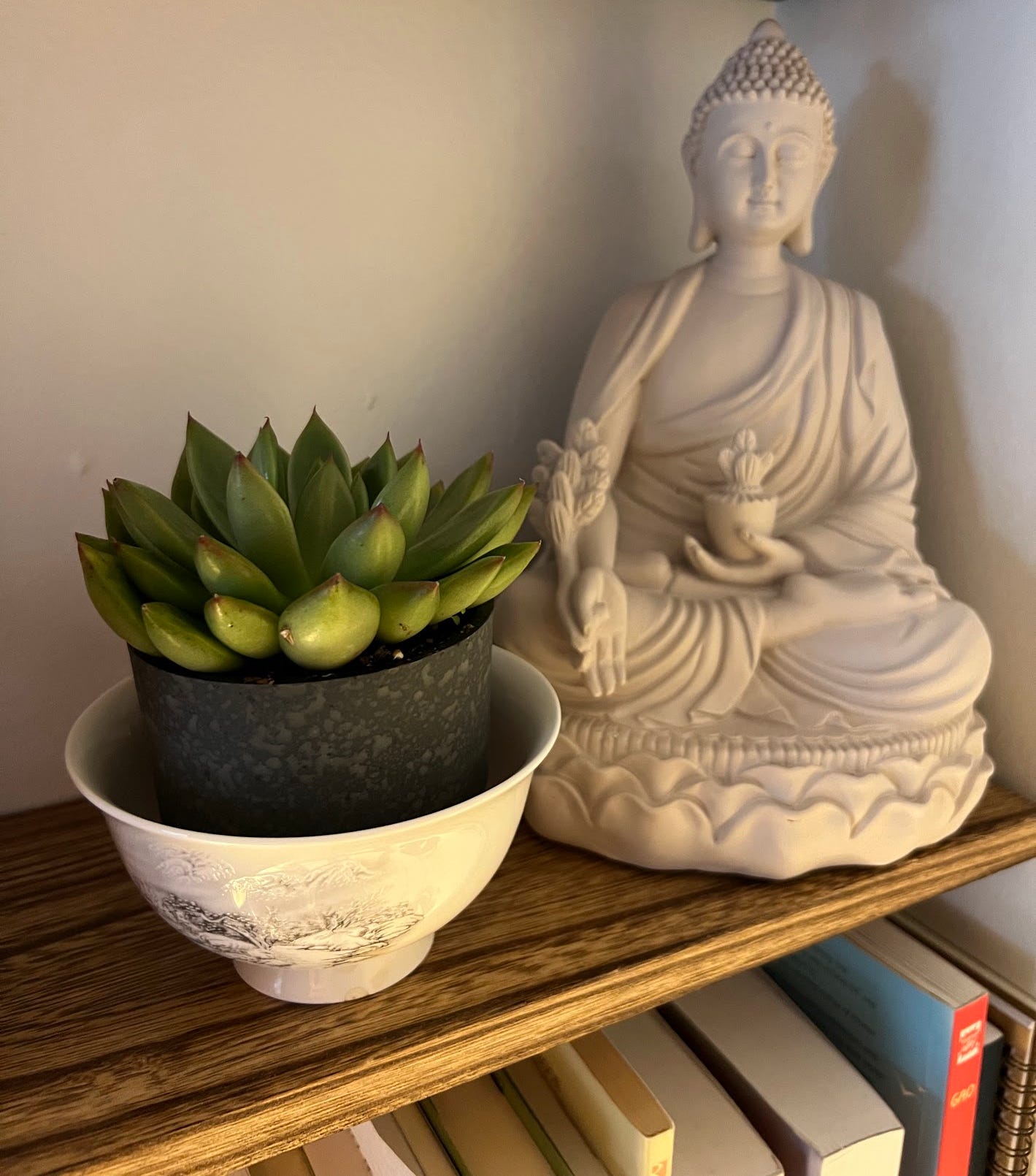I've always seen my intellectual curiosity as a pursuit of beauty. Math is beautiful, biology is beautiful, the rhythms of the brain are beautiful. But my aesthetic sense has been constrained by a fixation on universality. Finding one theory that explains a whole lot of things, like how natural selection explains the evolution of all organisms, or how Newton's laws explain the motion of every object in sight.
I call this a tendency towards abstraction. I want to reach out with my brain, with a specific concept, and be able to catch all of reality with it: understand as much as possible just with a few theories. We've done this time and again in our history—when we unified electricity and magnetism, when we discovered that DNA architects all of life. We've shown that it's possible to explain more with less.
What is abstraction? It's any act of pattern-finding, concept-forming. You take two flowers that look the same and call them both a rose. They're not the exact same thing, but we decide that they are in the same category, because of appearance or physiology or genetics. (Of course, calling them both flowers is also an instance of abstraction, and calling them both a thing is yet another.)
Abstraction is one of the distinctive capacities of modern humans, closely connected to the development of language. It gives us power, but it also ensnares us. If you're not careful, the tendency to abstract, to seek out the universal, can become the driving force of your engagement with the world. You're tempted to whittle down the set of concepts you have into a smaller and smaller set. Just a few ideas, just a few theories, and you can explain everything!
The universe does seem to have a few patterns that show up again and again, it is amenable to explanation by abstract, universal laws. The concepts we've formed have given our species a unique capacity to bend the world to our liking. But the universe is also endlessly detailed. Reducing all of it to these basic patterns makes life dull and flat and colorless.
Here's what happens when you're obsessed with abstraction: you abandon specific things because they don't seem important enough. You start to think of life as primarily this journey of figuring out some totalizing answer to everything, and all the other activities of life just feel like interruptions. You find it hard to appreciate or connect with people's fascinations with specific things: building mastery in a game, perfecting a recipe, improving a piece of art.
It's not that I've always believed art or games are a waste of time; I've appreciated those things as beautiful and fun. But I've had difficulty imagining them as the point. I've had trouble understanding why someone would spend a good chunk of their life on them; I would assume they're just "built different" from me. But now I can see it! They get immersed into these obsessions because they allow themselves to, because they don't succumb to a background process running in their mind that asks: but does this lead to some all-encompassing answer, purpose, or piece of knowledge?
Once you've broken the spell of abstraction, you can give more care to the details of your life. I've been spending more time learning how to cook, collecting plants, putting together different styles and textures in my wardrobe. Thrifting a jean jacket and a corduroy hat instead of adding to my ridiculously long collection of monochrome fleece sweatshirts. Allowing myself to build an aesthetic sensibility that's more unique to me, that entails a commitment to something specific.
Someone I was dating a few years ago once told me: you don't ask me enough questions. And I said something like, ok, what's been exciting for you lately or what's been on your mind? And they said, no, not that kind of question. You don't ask me about my brother. All I could care to be curious about was the heady stuff, the abstract, not the details.
And that should have been a warning sign for both of us: when you're in love with someone you really do want to know all the details, all the concrete stuff you can see and hear and touch and taste and smell, you're not just interested in the abstract universal properties that you can compress their personhood down to. It's the same thing with life, it's the same thing with the universe: to be in love with the world is to be sensitive to the beauty of its details and messiness.





<3
Lovely essay! The end reminds me of a paragraph in Only the Lover Sings that stuck with me:
“the ancient expression of the mystics applies here: ubi amor, ibi oculus — the eyes see better when guided by love; a new dimension of "seeing" is opened up by love alone! And this means contemplation is visual perception prompted by loving acceptance”